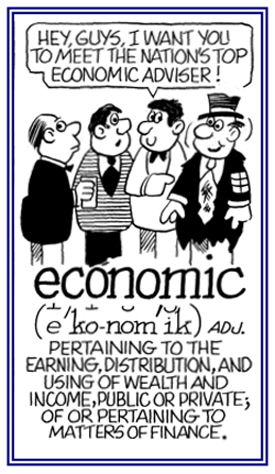eco-, oeco-, oec-
(Greek: house, household affairs [environment, habitat], home, dwelling; used in one extensive sense as, "environment")
2. Relating to the wise use or beneficial management of natural resources and of the natural environment.
2. The science concerned with interactions between organisms and the environment on spatial scales ranging from parts of individuals to the biosphere as a whole.
Literally, ecology means the "study of houses". The word was coined as ökologie by Ernst Haeckel, a German zoologist, in the 1870’s, based on the Greek word oikos. Although this means “house”, Haeckel was using it in the wider sense as “dwelling, habitat”. It was adopted into English soon after its coinage, originally as oecology which is similar to a Latin form.
- Physiological ecology, concerned with interactions between individual organisms and the environment.
- Population biology, the regulation of population growth and population size, and interactions among populations.
- Community ecology, characteristics of the collective properties of the organisms in an area.
- Ecosystem ecology, regulation of the flows of energy and material in terrestrial and aquatic ecosystems.
2. A pathological dislike of the members of one’s family often resulting in a feeling that one must get away from them.
2. Of, or relating to, or characterized by, the application of mathematics to economic data or theories.
2. Relating to the development and regulation of the material resources of a community or nation: Ted's town was almost in economic ruin because its finances were in desperate straits!
3. Concerning the production and distribution of material wealth; sometimes used as an equivalent to a political financial system, but more frequently with reference to practical and specific applications: The economic reforms planned by the new government for the country were more difficult to accomplish than anticipated.

Go to this Word A Day Revisited Index
so you can see more of Mickey Bach's cartoons.
2. Someone who studies, works, or is an expert in the field of economics.
2. The prudent managing of resources to avoid extravagant expenditure or waste.
3. A saving or attempt to reduce expenditure.
4. Originally, the management of a household.
5. Current usage is sometimes a reference to that which is intended to be less expensive or to give better value.
The basic notion contained in the word economy is “household management”. It comes from Greek oikonomia, by way of French or Latin, and means the "steward of a household". This was a compound noun formed from oikos, "house" and nemein, “manage”. The original sense "household management" was extended into English. It broadened out in the 17th century to the management of a nation's resources, while the use of the derivative economics for the theoretical study of the creation and consumption of wealth dates from the early 19th century.



